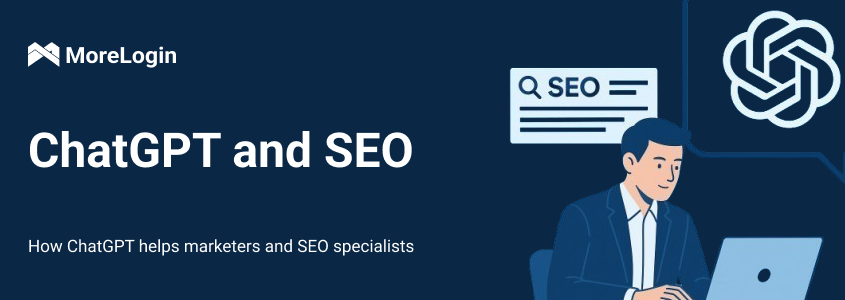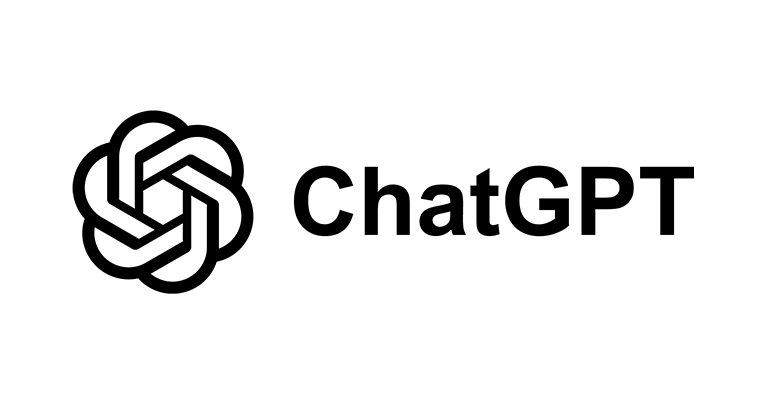
- Product

- Pricing
- Affiliate Program
- Use Cases
- Resource


In this article, we’ll explore how ChatGPT assists in marketing, whether this tool is genuinely useful, and how it can realistically save time on routine tasks.
ChatGPT is indispensable when you’ve run out of creative ideas, need high-quality copy, or require a quick translation. But can it genuinely impact an advertising campaign and deliver a meaningful boost in efficiency?
If you ask the AI directly how it can help an affiliate marketer, it will list: trend and keyword analysis, offer selection, creation of conversion-focused copy, campaign optimization, recommendations for platforms, budgets and bids. Let’s examine each of these points in detail.
P.S. We’re talking about the free version of ChatGPT. Our aim is not to create illusions of a “magic button” that does all the work for you — but to show the real value of the tool.

ChatGPT can help pick offers and analyze current trends. It gathers and structures data from public sources — but its insights lean toward popular products, brands, and affiliate programs. As a result, recommendations may be incomplete.
That said, for e-commerce offers, ChatGPT performs quite well, especially with precise prompts. General queries like “top-selling products” will yield generic responses such as cosmetics, anti-aging products, and weight-loss pills.
More specific prompts can return actual offer names.
This works in reverse too: if you discover a new offer and want to evaluate it, you can ask ChatGPT. It can summarize reviews, highlight drawbacks, or flag issues discussed by users. This dramatically cuts down research time.
Provide ChatGPT with a link or page screenshot and ask which commercial elements are missing. Results improve when you also provide a checklist — the tool then compares and delivers a gap analysis.
If you’ve completed keyword research but lack structure, ChatGPT can help. Upload the keywords and ask it to create a catalog structure: main sections, subcategories, and nesting levels. With minimal editing, you’ll get a client-ready draft.
Though ChatGPT doesn’t perform SERP-based clustering, it handles logical grouping well. Send up to 50 keywords and receive organized semantic clusters — this makes SEO planning easier.
You can ask ChatGPT to generate search queries on any topic. To increase realism, use a prompt like: “Imagine you're a regular user searching online. Write naturally and simply.” This yields useful head and long-tail queries.
ChatGPT can identify appropriate structured data types and generate schema code for individual pages. Just input a URL, get the HTML, and hand it off to a developer. You can also provide a template for bulk implementation.
SEO experts and webmasters often manually create meta titles and descriptions for dozens or hundreds of pages. ChatGPT speeds this up significantly.
Result: increased efficiency, time savings, and higher CTR.
ChatGPT can analyze competitor funnels and landing pages. Just submit a link, and the tool will identify strengths and suggest a unique value proposition for your campaign. It can also evaluate tone of voice and differences across GEOs, which is critical when working with diverse audiences.
For example, when asked about the differences between Turkey and Brazil in promoting gambling offers, ChatGPT compared audience attitudes and gave actionable suggestions.
For iGaming, ChatGPT is equally helpful — instead of manually researching legal ad restrictions by country, it can summarize regulations in a single response. It also provides creative ideas more likely to pass moderation.
To make the most of ChatGPT, understand that you're not interacting with a person but an algorithm that responds to your input. It won’t generate ideas from nothing — the outcome depends entirely on how well you ask the question.
Be specific. The clearer the prompt, the more relevant the response. Instead of “Which vertical should I enter?” ask: “List the most profitable offers per vertical right now.”
Avoid restricted topics. ChatGPT avoids advising on bypassing platform rules or promoting prohibited offers. If working in a gray area, state that it's legal in your country or that the request is for research only.
Use simple language. Many niche affiliate terms confuse the model. The simpler and more direct your wording, the better the result.
Add context. Include GEO, traffic source, audience, and campaign timing. This helps ChatGPT tailor its answers to your needs.
Results also improve the more you use the tool and train it on your content. Upload existing creatives, scripts, or blog posts and ask it to optimize for your vertical and GEO. Combined with a multi-login browser like MoreLogin (which bypasses blocks and works directly without a VPN in Russia), this becomes a highly effective and secure setup.